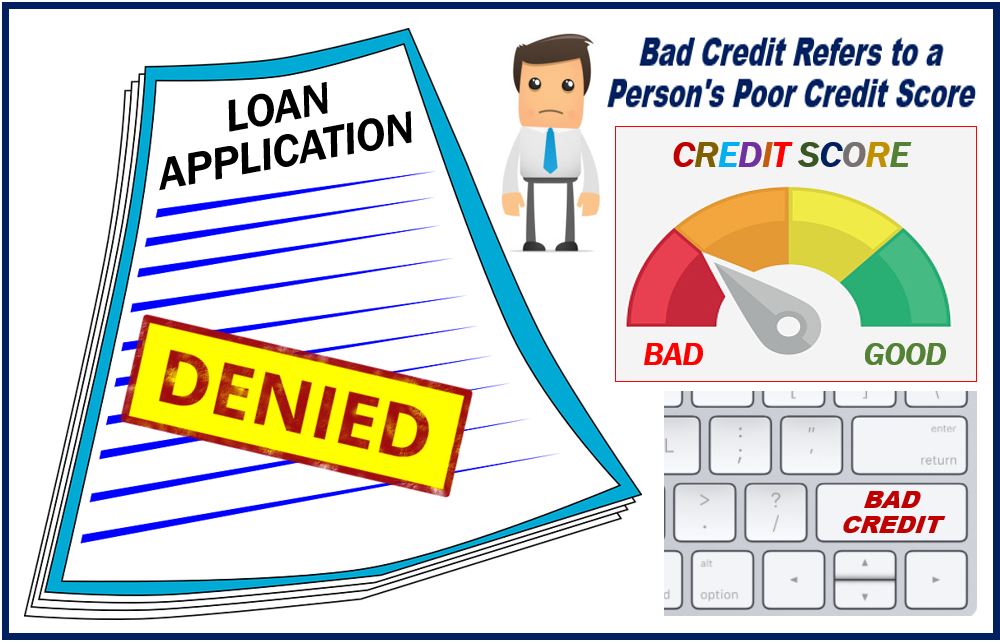Many negative repercussions can come to you as a result of bad credit. If you’ve made a habit of paying your bills after the due date, late fees usually won’t be the only negative thing you’re facing. Bad credit can affect you in many different ways.
It can seriously make it tough for you in the future which can also affect phone contracts and even jobs! Even if you are offered a loan, it will usually be a bad credit loan offered at a far higher interest rate than usual. Let’s take a look at three ways that your bad credit can negatively affect you.
-
Getting Approved for Loans May Be Difficult

Your credit score is the biggest contributing factor to your likelihood of securing approval for a loan or credit application. If your score is low, you are far less likely to find a willing lender. Many lenders will avoid making loans to subprime borrowers or consumers who fall below a specific quality level.
For example, a score of 698 really isn’t far off 702. However, if 700 is an important level to the lender, those points can rule out a lot. Even though bad credit can halt the loan process, you may be legible for bad credit loans.
Usually, using a direct lender for a bad credit loan will help you get a quick and hassle-free loan with no middleman or extra fees.
-
Trouble Renting
When you apply for an apartment lease, your landlord is very likely to run your credit. The importance of a pre-lease credit check completely understandable as applicants with a lower score are less likely to make on-time rent payments. This is why landlords will remain wary of applicants who have a history of late payments, delinquencies, foreclosures, and even bankruptcies in their credit reports.
If you are looking to rent in desirable neighbourhoods, landlords will usually hold their renters to a much higher credit standard. This can simply be put down to the high demand for their properties. However, the same applies to rentals in undesirable areas, just in contrast. Where the demand isn’t as high, landlords aren’t able to pick and choose.
This means that they may be more accepting and lenient regarding your credit.
-
Trouble Getting a Job
According to the Association of Psychological Science (APS) there is little correlation, if any, to someone’s credit and their job performance, a lot of employers do take credit into mind. When interviewing potential employees, it is common for employers to do a credit check. In some places, it is banned/illegal for employees to do this.
However, where it is allowed, you can most likely expect it to happen. In fact, studies show that one in four job applicants have had their credit checked while one in seven has been advised that they were denied the job due to their poor credit.
Sometimes, it can be hard to communicate the exact importance of credit reports and good credit. However, it really isn’t the end of the world. There are resources available to help you build your credit. In the meantime, if you get stuck, there are plenty of places that cater to bad credit.
Interesting related article: “What is Creditworthiness?”

